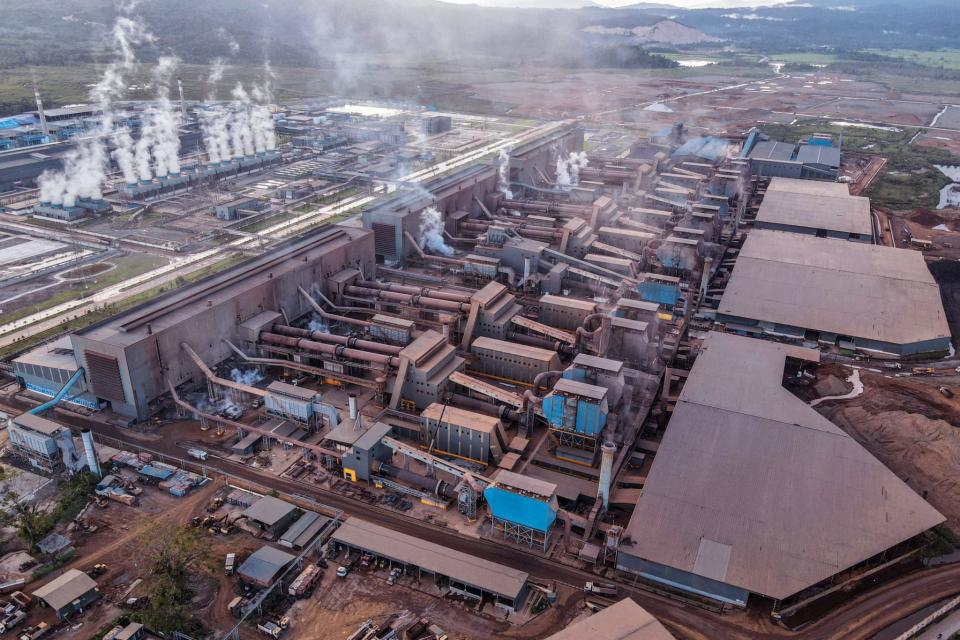Mining giants are worried that a flood of cheap Indonesian nickel could wipe them out

Indonesia has a strong hold on the nickel industry. The Southeast Asian country boasts the world’s largest nickel reserves and last year produced about 40% of the world’s supply of the metal, which is used to make stainless steel and is also vital to the production of electric car batteries.
Now, Indonesia's position is poised to become even more dominant—the CEO of Eramet, a French mining firm, says the country's low-cost nickel suppliers could wipe out rivals in the next few years.
Christel Bories, the head of Eramet, told the Financial Times Indonesia could account for more than 75% of the world’s highest class of pure nickel in five years time.
"Uncompetitive mines elsewhere will close," Bories warned, adding that she was pessimistic about the prospect of an external savior: "I’m not sure there will be so many governments deciding to subsidize big production with a lot of money just to compete with Indonesia production."
Eramet's operations in the French territory of New Caledonia is losing money, and Bories is warning the island to prepare for a shrinking nickel industry.
Bories' prediction echoes other mining CEOs, like BHP chief executive Mike Henry, who warned that help from Australia's government "may not be enough" to save the Australian mining firm's nickel operation in Western Australia.
BHP wrote down the entire value of its Western Australian nickel mine, worth $2.5 billion, last week. The Australian firm reported an 86% year-on-year drop in net income for the last six months of 2023.
Fellow mining giant Glencore announced in mid-February that it plans to sell its stake in a loss-making nickel mine and processing plant on New Caledonia, and a Glencore-backed company also said it needs more money to restart a nickel project in Brazil.
An oversupply of the metal driven by a supply surge from Indonesia has contributed to the collapse of nickel prices. Miners have closed six nickel projects in Australia in the past year. Nickel is currently trading at just above $17,000 a ton, according to the London Metal Exchange, down from $42,000 a ton in early 2022.
Indonesia banned nickel ore exports in January 2020 in a bid to encourage domestic processing and enhance its downstream capabilities. That in turn has led to a surge of investments, particularly from Chinese companies, to build local smelters. Indonesia nickel production volume rose by over 50% in 2022, according to the U.S. Geological Survey.
There may also be changes on the demand side as well. China's ongoing property crisis could be lowering demand for stainless steel, which uses nickel.
In addition, changing tastes in the EV market could be affecting nickel prices. Nickel is a key material in some EV batteries. Yet major suppliers like BYD and CATL are turning to cheaper lithium-iron-phosphate (LFP) batteries, that don't require nickel.
This story was originally featured on Fortune.com
